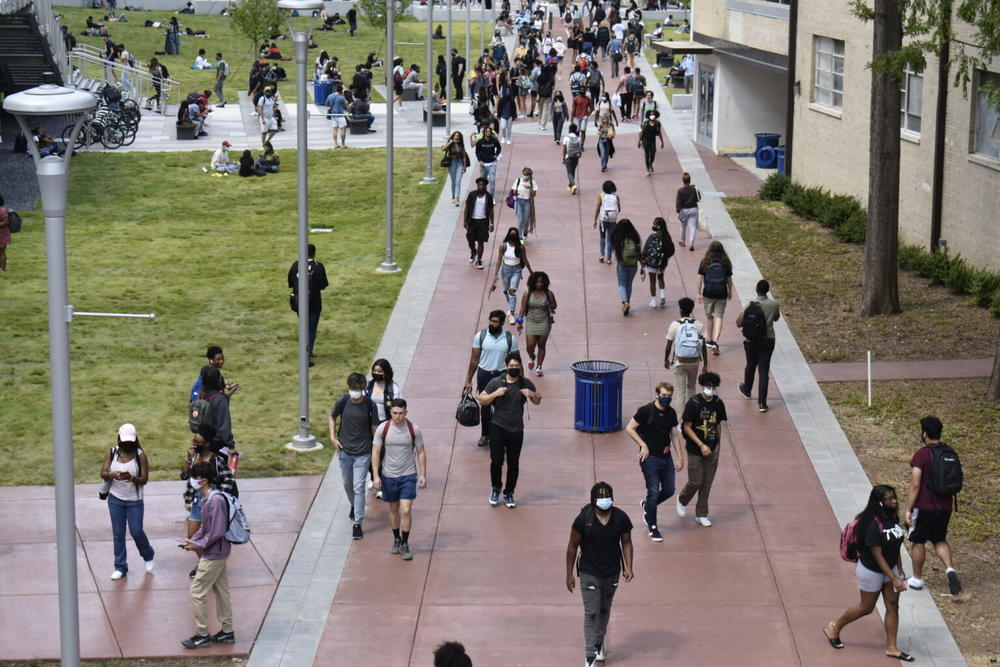
Caption
Georgia State University students walk to and from class. University system leaders are considering a change to the way university presidents are selected that could give more power to regents and Chancellor Sonny Perdue.
Credit: Ross Williams/Georgia Recorder

